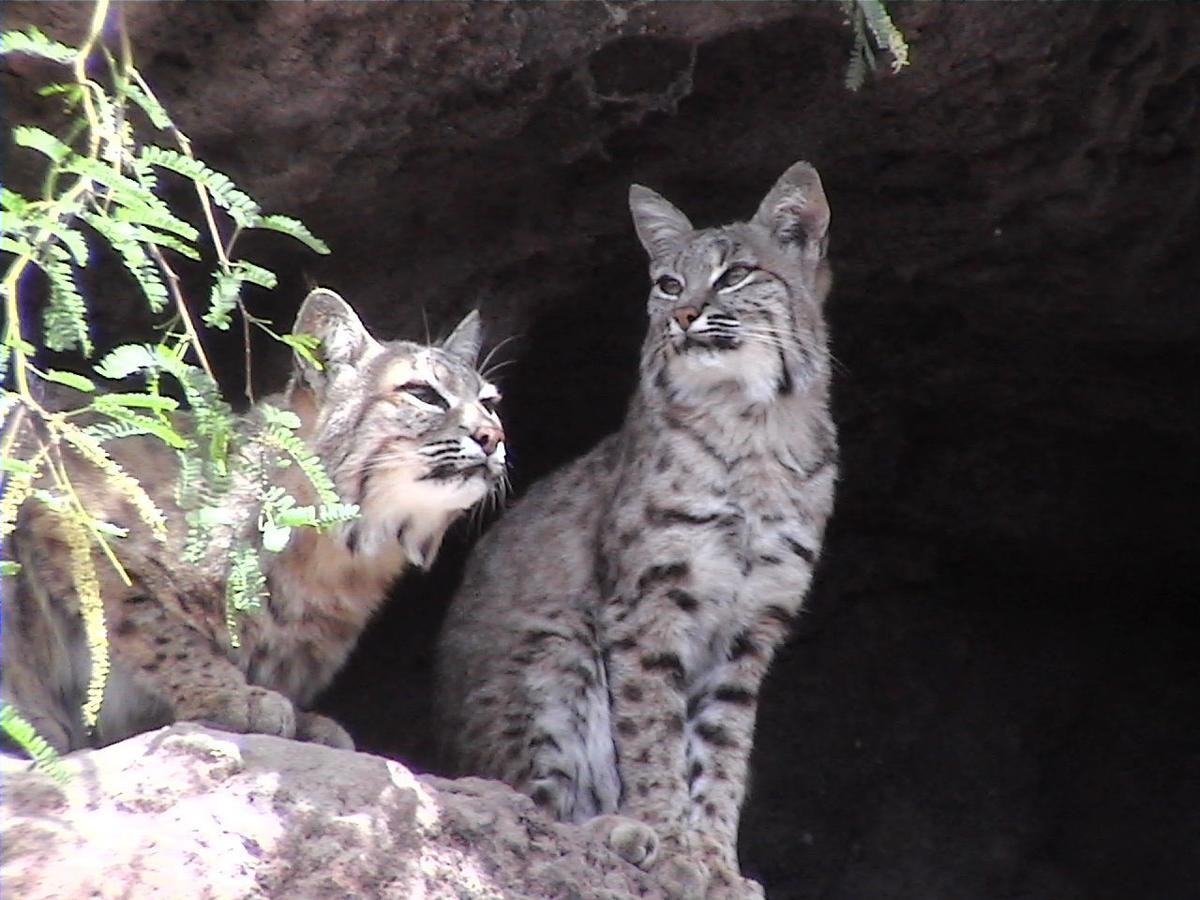Recently, Darren Julian, an urban wildlife specialist with Arizona Game and Fish Department, was a guest on the “Rosie on the House” radio program to discuss how Arizona residents can deal with problems they have with wildlife. Here are some questions from homeowners along with answers from Julian and our staff.
QUESTION: We live in Picture Rocks and there is a resident bobcat hanging around our home that seems to have lost its fear of humans. We don’t want to kill it, and I wondered if putting electric-powered wire at the top of the fence would stop them from coming on our property and eating our chickens. We want to keep the chickens in with our horses to control the flies, but the bobcat can kill eight of them in a day.
ANSWER: If bobcats keep visiting, and you can actually see one for any length of time, keep a water hose with a sprayer handy and soak the bobcat thoroughly with water. It may take doing that a couple of times, but they will start to avoid your location. A more difficult issue is the chickens, the food source. You need to build a bobcat-proof chicken coop and might want to install a battery-powered, motion-activated garden hose. The hose will come on at night when the bobcat walks into the area. A harmless burst of water will shoot out to scare the bobcat away.
Q: I have heard that collecting human urine and sprinkling it around the yard will keep javelinas from eating your plants? Is that true?
A: There are lots of stories about that, but they seem mythological. A more hygienic solution would be to use an animal repellent, like Bonide, or the motion-activated garden hose mentioned before.
Q: Are coyotes making contact with pet dogs in Pima County? Can coyotes spread rabies?
A: Pima County is a hotbed for rabies in Arizona. Typically, in urban areas you don’t see many problems with the spread of rabies. But in drought years, like this one, rabies is more of a threat since wild animals enter housing areas looking for food and water.
In general, animal diseases also spread quickly in unincorporated areas. So make sure that your pets are vaccinated and don’t keep bowls of water outside for the dog. If a dog has been in contact with coyotes, it might have to be confined for a while to be sure it doesn’t get sick. Bobcats, javelinas and coyotes can all get rabies.
Q: We’ve had a lot of trouble since last year with a woodpecker making his third hole in a saguaro near our house. In the process, this activity splatters a lot of sticky, tarlike stuff on our bedroom window. I can stand out there for 20 minutes to clean up the mess. A friend of mine went up a ladder and put a lemon in the hole and wire over the opening, but that didn’t stop him. The bird stands on the wire to work on the hole. How can I get rid of him?
A: There seems to be no easy way to handle this problem, which is one of the most frequent complaints we get from homeowners about wildlife. When birds are pecking on houses, some homeowners hang shiny Mylar tape from the eaves of the roof. So maybe you could try that. You might try to spray the area with Tabasco and cayenne pepper because the taste might irritate them.
Basically, the more things you do to disrupt their activities, the more likely you will have good results. Then again, the saguaro is not your home, so maybe you’re experiencing the lesser of two evils. Many woodpeckers attack stucco walls. You cannot kill a woodpecker, by the way, without getting a permit from U.S. Fish and Wildlife.





